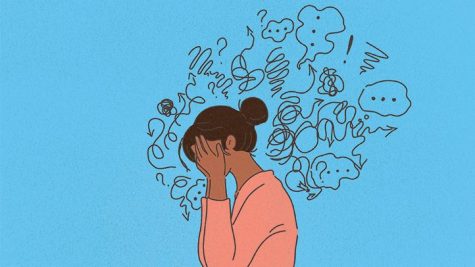Exploring the Merits of Mindfulness
When it comes to mental health, there is one word that has found its way into almost every recent conversation: mindfulness. It sounds simple enough, but this small practice has grown into a big movement that deserves attention. It’s easy to wonder if mindfulness is just another passing trend that will leave as quickly as it arrived, but it is a concept with a history and an exciting future.
What is mindfulness exactly? Mindfulness refers to a practice of self-observation, done without judgement, that seeks to promote a state of open awareness of the present moment. It means being aware of your surroundings and letting distractions pass without attention. While mindfulness can be highlighted through dedicated acts like yoga or meditation, it can also be a constant mindset that we apply in our daily lives.
Mindfulness originated long ago with the Buddhist tradition of sati, the first factor of the Seven Factors of Enlightenment. In fact, sati was first translated into English as “mindfulness” in 1881. Though mindfulness has recently been detached from its Buddhist roots, one of the most incredible examples of the power of mindfulness is found in the brains of long-term meditators, particularly Buddhist monks. Researchers have found that after practicing long-term meditation, the brain improves its memory, compassion, emotional control and creativity.
It is unlikely that the average person can achieve the same incredible results as those who practice mindfulness meditation on a long-term scale. However, everyone can benefit from the practice, even if it is a small change. Dan Harris, a journalist and correspondent for ABC News, became an advocate for mindfulness meditation after suffering from a panic attack while on air. Harris’ story shows how mindfulness and meditation can be practically applied to the life of an everyday person. At first, Harris was very skeptical of the self-help advice he received, and he was not shy about sharing his honest feelings. However, he soon found that meditation worked wonders on his anxiety. He called his journey “10% Happier,” showing viewers that the goal should not be perfection, but improvement over time.
Mindfulness is not simply about meditation. Instead, meditation is just one way to dedicate time to mindfulness in a meaningful way. With all of the technology we have access to, we are constantly bombarded with stimuli. We always know what our friends are doing while they are doing it. We receive emails from work or school no matter how far away we are. We are constantly connected, and although this can be a good thing, too much removes us from the here and now. One glance at our phone and we are immersed in whatever is going on in the world of our screens.
It is more important than ever that we encourage and incorporate mindfulness into our daily lives. Psychology studies have noted that mindfulness can combat symptoms of depression and anxiety and even boost our immune system. Meditation and breathing exercises can ease the symptoms of a panic attack as well. By focusing on the present moment, we are more likely to treat ourselves with compassion and not feel like we are falling behind in the fast-paced world around us.
There is a multitude of resources available to make mindfulness apart of your life. Applications such as Calm and Headspace (which include extensive mindfulness meditation exercises for you to try) are available for download. Additionally, Fordham University’s Counseling and Psychological Services (CPS) have their own application, called Stressbusters, that includes relaxing sounds and meditations to guide you in your mindfulness journey.
Mindfulness is often a series of daily decisions, choosing to remain in the present no matter what life throws at you. This does not mean neglecting the future. Rather, it means paying attention to the task at hand. Whether that means putting your phone away during lunch with friends, avoiding distractions while studying at the library or walking without headphones in.
Mindfulness allows us to be more present in our relationships, which is invaluable. It allows us to listen to others to improve understanding and promote empathy, which is more than important in today’s world. Mindfulness allows for more compassion towards ourselves. We are able to cut those mental spirals of self-doubt and self-criticism by grounding ourselves in the moment and thinking realistically, as best we can.
This information can be a lot to take in. And I am sure that you, just as I did once, find this to be an oversimplification of mental health. Mindfulness is far from a cure-all to life’s problems. However, the overall mindset can make a world of difference in handling the blows that life throws at us every day.
Taking things one step at a time is nothing new, but it might just change your life.
As this is my last article for my mental health column, I want to express my gratitude to everyone who was a part of Volume 101 for giving me this opportunity. I am incredibly appreciative of the help I have received and the ability to write these articles in the first place. Thank you.
Columnist volume 101, Editorial Director and Opinion Editor volume 102













































































































































































































